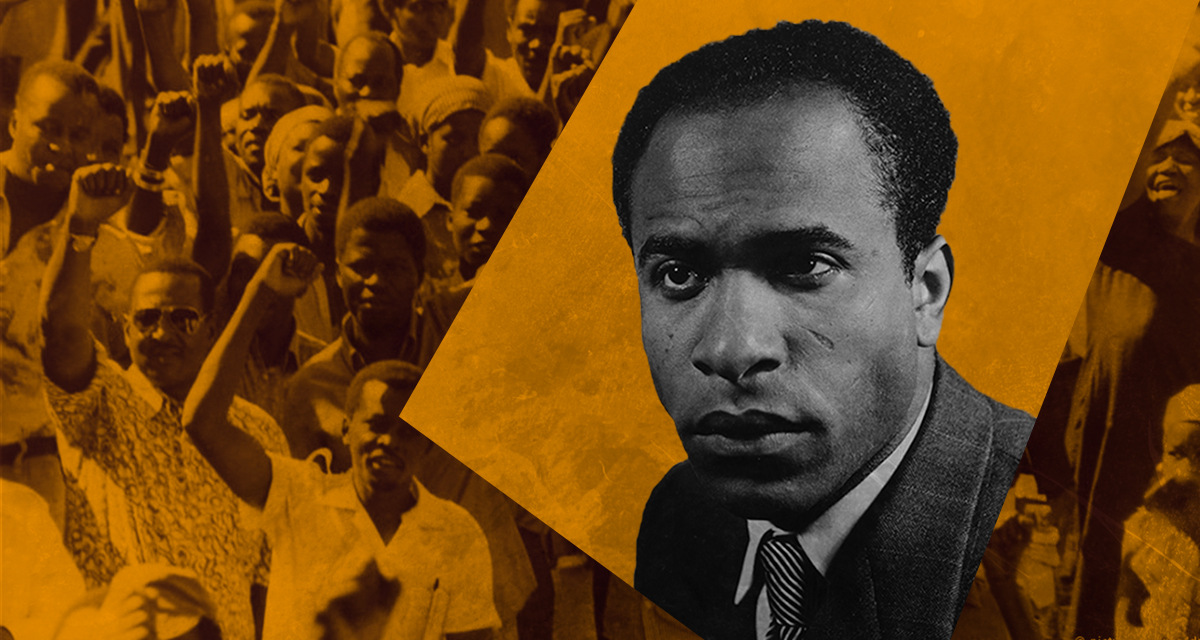
Frantz Fanon, a name that resonates throughout history as a revolutionary figure in the fields of psychiatry, philosophy, and activism. Born in Martinique in 1925 and later becoming a prominent voice in the fight against colonialism and oppression, Fanon’s ideas continue to spark discussions and inspire new generations. This enigmatic thinker delved deep into the human psyche, exploring the effects of colonization on individual and collective identity.
In this article, we will delve into 17 fascinating facts about Frantz Fanon, shedding light on his life, his works, and the impact he has had on the fields of philosophy, activism, and beyond. From his influential books such as “Black Skin, White Masks” to his pivotal role in the Algerian Revolution, Fanon’s legacy remains a powerful force that challenges the status quo and advocates for freedom and equality.
Key Takeaways:
- Frantz Fanon, a psychiatrist and revolutionary philosopher, believed in armed resistance and cultural identity as crucial tools for liberation from colonial oppression.
- His ideas continue to inspire scholars and activists, challenging Eurocentric narratives and advocating for social justice and decolonization worldwide.
Frantz Fanon was a psychiatrist.
Before becoming a revolutionary philosopher, Fanon trained as a psychiatrist in France. His training in psychology would greatly influence his understanding of the effects of colonization on the psyche of the oppressed.
Fanon fought in World War II.
During World War II, Fanon served in the French army, witnessing firsthand the discriminatory treatment of colonial troops. This experience further fueled his anti-colonial sentiments.
His best-known work is “The Wretched of the Earth.”
Published in 1961, “The Wretched of the Earth” is Fanon’s seminal work that explores the psychological and sociopolitical impact of colonization on individuals and societies.
Fanon was deeply influenced by existential philosophy.
Existential thinkers such as Jean-Paul Sartre played a significant role in shaping Fanon’s philosophical outlook. He incorporated existentialist ideas into his analysis of colonial oppression.
He advocated for armed resistance against colonial powers.
Fanon believed that the only way to dismantle colonial structures was through armed struggle. He saw violence as a necessary means to achieve liberation.
Fanon was a key figure in the Algerian Revolution.
During his time in Algeria, Fanon became actively involved in the struggle for independence and played a crucial role in shaping the discourse around decolonization.
He was a vocal critic of racism and discrimination.
Fanon consistently spoke out against racial injustice, highlighting the dehumanizing effects of colonialism and institutionalized racism.
Fanon’s theories influenced the Black Power movement.
His ideas resonated with activists in the United States, contributing to the development of the Black Power movement and inspiring generations of Black intellectuals.
He believed in the importance of cultural identity.
According to Fanon, reclaiming and celebrating one’s cultural identity was a crucial aspect of decolonization and the restoration of dignity.
Fanon’s work emphasized the role of violence in liberation.
While controversial, Fanon argued that violence was a necessary tool for oppressed peoples to break free from the chains of colonialism and assert their true humanity.
He supported the concept of “national consciousness.”
Fanon believed that the development of a collective national consciousness was essential in the process of decolonization and the fight against oppression.
Fanon’s writings continue to inspire scholars and activists.
His ideas have had a lasting impact on the fields of postcolonial studies, critical theory, and social justice movements, inspiring ongoing conversations about liberation and resistance.
He died at a young age.
Tragically, Fanon passed away at the age of 36, leaving behind a legacy that continues to be celebrated and interrogated.
Fanon’s work has been translated into numerous languages.
His writings have been translated into multiple languages, allowing his ideas to reach a global audience and inspire people from diverse backgrounds.
He was a strong advocate for women’s liberation.
Fanon recognized the intersectionality of oppression and advocated for the liberation of women from both colonial and patriarchal systems.
Fanon’s ideas challenged Eurocentric narratives.
His critique of Eurocentrism and the power dynamics of colonialism forced scholars and intellectuals to reevaluate prevailing discourses of superiority and domination.
Fanon left an enduring legacy.
Frantz Fanon’s work continues to provoke critical thinking and inspire movements for social justice and decolonization around the world. His ideas challenge the status quo and offer new pathways toward liberation.
Frantz Fanon’s life and work remain a testament to the power of critical analysis, resistance, and the quest for freedom. Through his writings, he invites us to question the structures of oppression and envision a more just and equitable world.
Conclusion
In conclusion, Frantz Fanon was a truly enigmatic figure whose life and work continue to captivate and inspire. Through his writings, activism, and revolutionary spirit, Fanon made significant contributions to the fields of postcolonial studies, psychiatry, and political theory. His ideas surrounding topics such as colonialism, racism, and the decolonization process have had a profound influence on scholars, activists, and thinkers around the world. Additionally, Fanon’s insights into the psychological effects of oppression and the quest for individual and collective liberation have helped shape our understanding of the human condition. Despite his untimely death at the age of 36, Fanon’s impact continues to be felt, and his legacy serves as a reminder of the ongoing struggle for freedom, justice, and equality.
FAQs
Q: Who was Frantz Fanon?
A: Frantz Fanon was a highly influential writer, psychiatrist, and revolutionary thinker. He was born in the French colony of Martinique in 1925 and later became an active participant in the Algerian War of Independence. Fanon’s writings, including “Black Skin, White Masks” and “The Wretched of the Earth,” explore the psychological effects of colonialism and advocate for the decolonization of oppressed peoples.
Q: What were some of Frantz Fanon’s major ideas?
A: Fanon’s major ideas revolved around the topics of colonialism, racism, and decolonization. He emphasized the psychological impact of oppression on both the colonized and the colonizer, arguing that true liberation could only be achieved through the dismantling of colonial structures and the empowerment of colonized peoples.
Q: How did Frantz Fanon influence the field of postcolonial studies?
A: Fanon’s ideas and writings have had a profound impact on the field of postcolonial studies. His works provided a critical examination of the psychological and social effects of colonialism, paving the way for further exploration of these themes by subsequent scholars. Fanon’s perspective on power dynamics, identity formation, and resistance continues to shape the discourse surrounding postcolonial theory.
Q: What is the significance of Frantz Fanon’s work today?
A: Fanon’s work remains highly relevant in contemporary society. His analysis of power structures, racial dynamics, and the struggle for liberation provides valuable insights into ongoing social and political issues. Fanon’s emphasis on the importance of collective action, self-determination, and the need to challenge oppressive systems continues to inspire activists, scholars, and individuals fighting for justice and equality.
Q: How did Frantz Fanon impact the field of psychiatry?
A: Fanon’s background in psychiatry influenced his analysis of the psychological impact of colonialism. He argued that the psychiatric field often served as a tool of oppression, perpetuating the dehumanization of colonized peoples. Fanon called for a decolonization of psychiatry, advocating for a more holistic approach that considers the social, political, and historical contexts of mental health.
Frantz Fanon's revolutionary ideas continue to inspire generations, much like Edward Said's groundbreaking work in postcolonialism. Sigmund Freud's contributions to psychoanalysis laid the foundation for understanding the human psyche, while Theodor W. Adorno's critical theory challenged societal norms. Explore the fascinating lives and thoughts of these influential figures, each leaving an indelible mark on their respective fields and shaping the way we perceive the world around us.
Was this page helpful?
Our commitment to delivering trustworthy and engaging content is at the heart of what we do. Each fact on our site is contributed by real users like you, bringing a wealth of diverse insights and information. To ensure the highest standards of accuracy and reliability, our dedicated editors meticulously review each submission. This process guarantees that the facts we share are not only fascinating but also credible. Trust in our commitment to quality and authenticity as you explore and learn with us.


